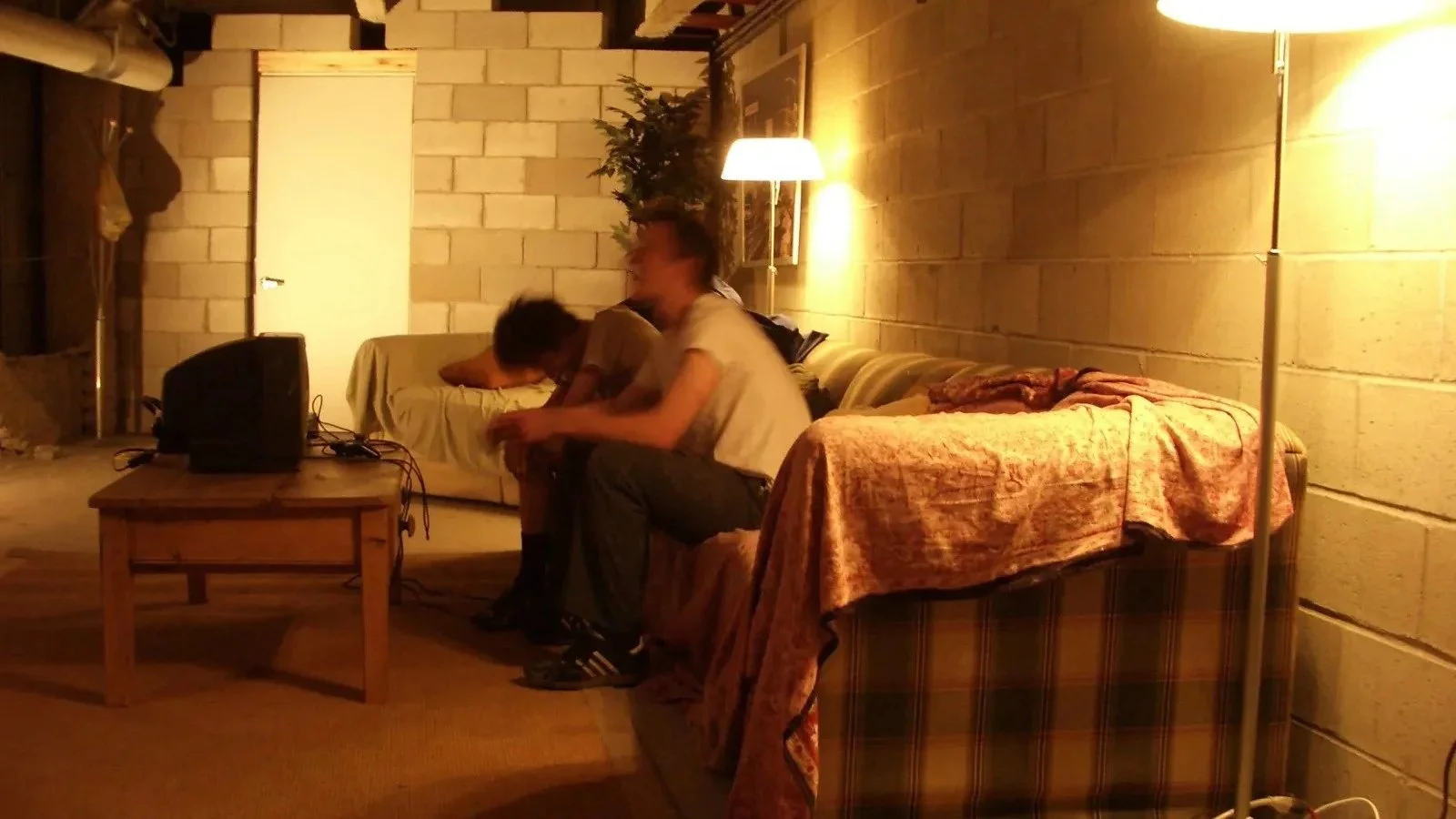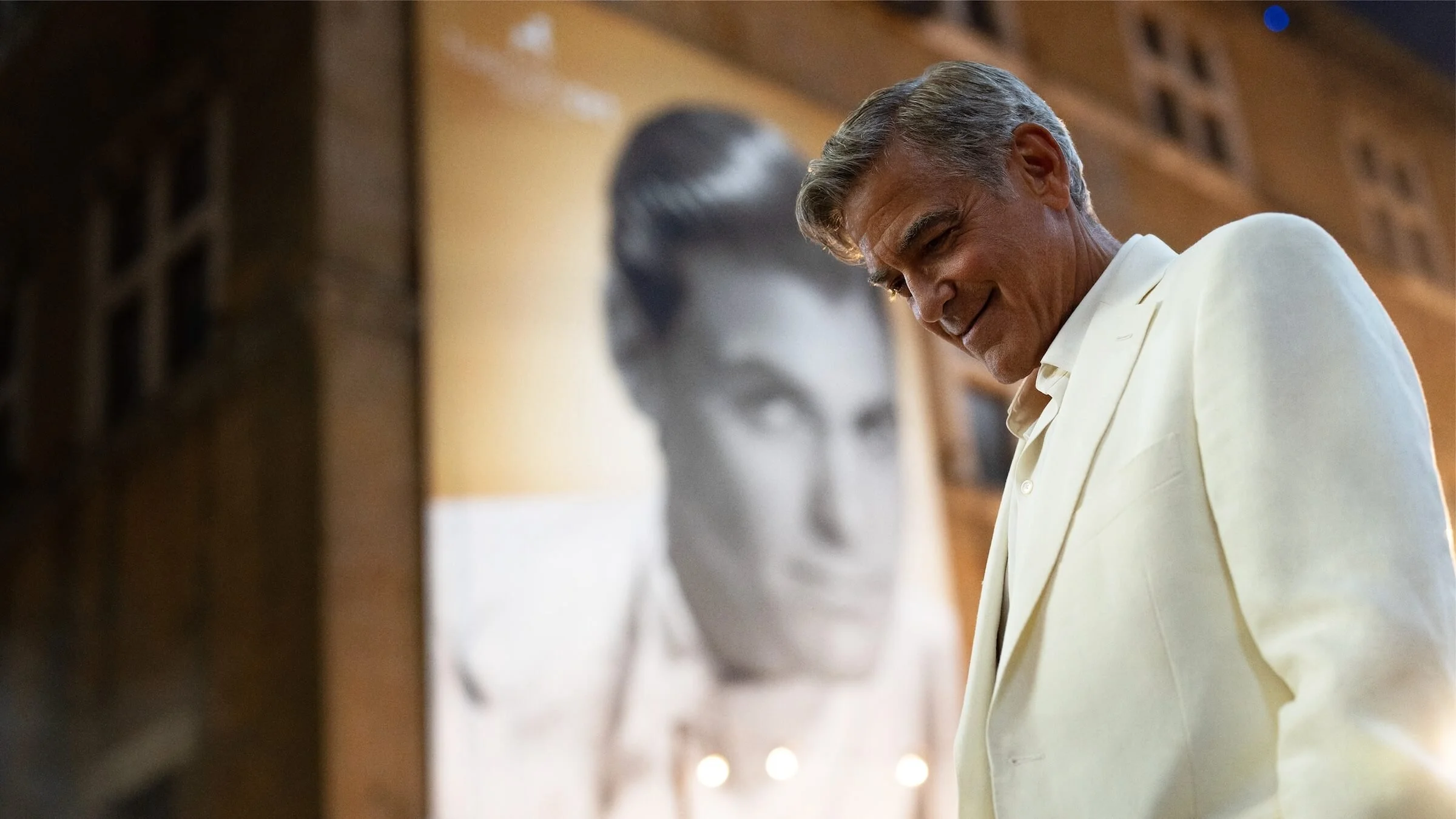Review: Friendship (2024)
The decline of friendship is an oft-noted feature of our times. For instance, in a recent interview promoting the use of AI bots as friendship-replacement tools, Mark Zuckerberg cited the statistic that the average American has fewer than three friends. What is it about making friends, especially for adult men, that is so hard? What is it about contemporary existence that keeps us isolated and lonely? The decline of institutions, such as churches, clubs, and unions, our predominantly screen-based culture, and the rise of the internet have all been offered as possible explanations as to why, to paraphrase Robert Putnam’s landmark book, so many of us are “bowling alone.” But, what Friendship, the new comedy from writer-director Andrew DeYoung, starring Tim Robinson and Paul Rudd, explores is the terrifying possibility that, amidst those larger socio-economic causes, the real reason you have no friends is because you are in fact an antisocial weirdo.
Friendship is perfectly calibrated as a star vehicle for Tim Robinson in the role of Craig Waterman, the aforementioned antisocial weirdo. Robinson has gained a cult following for his Netflix sketch comedy show, I Think You Should Leave, and Comedy Central’s Detroiters, following a stint on SNL as a writer and featured player. His awkward actor’s persona and impeccable comedic timing have endeared him as a new standard bearer of surreal comedy. Pairing Robinson with the beloved Paul Rudd sets up Friendship as a potential new comedy classic.
Craig Waterman lives in the small town of Clovis, Colorado. He works as an executive at a company that, in his words, makes apps more habit-forming. His wife Tami (Kate Mara), is a cancer-survivor who has been in remission for a year and they have a 16-year old son, Steven (Jack Dylan Grazer). However, Craig is increasingly disconnected from the world and his family. His wife has rekindled a friendship with an ex-boyfriend in the wake of her recovery and started a home-based flower business. His son no longer wants to go see the new Marvel with him. When he accidentally receives a package intended for their new neighbour, Craig goes to return it and meets Austin Carmichael (Paul Rudd), the local evening weatherman and the two quickly hit it off.
Rudd plays Austin as a mix between his character from Anchorman, with a kind of bravado and self-conscious charm, and a suburban Tyler Durden a la Fight Club. Craig quickly becomes enamoured with Austin, who seems to live in a much freer and more appealing way than he does. Simultaneously, Craig encourages Austin to apply for the morning weatherman job at work following his philosophy of “just ask.” They begin a friendship, bonding over their shared interests and frustrations. Austin takes Craig to explore the underground tunnels in the sewers under the city and later Craig attends a punk show where Austin plays in a band. The friendship with Austin has seemed to unlock something in Craig, who starts to be more attentive as a father and husband. He encourages Craig to pursue his own dreams too, convincing him to order a drum set and try his hand at making music.
One night Austin invites Craig to hangout with a larger group of his friends at his house, and the experience of inclusion that he feels leaves Craig feeling euphoric. However, Craig does something that night that angers Austin and his friends, ending the evening prematurely and resulting in Austin suggesting that he and Craig no longer pursue a friendship. This leaves Craig feeling desperate and obsessive with “winning” Austin’s friendship back, and he engages in an escalating series of actions that involve breaking-and-entering and even getting his wife lost in the city’s sewers.
Friendship straddles a line just this side of the surreal, its levels of cringe-inducing situations and absurdism never quite leaving reality, but certainly pushing the limits of normal human behaviour. While Craig isn’t malevolent, his is a peculiar form of narcissism that isn’t focused on his own self-aggrandizement, but results in an inability to quite understand or consider how other people might see things. There is more than an element of Fatal Attraction or other psycho-stalker films to Friendship. His quest to win back the friendship of Austin leads him on all kinds of insane journeys, including a hilarious ayahuasca-like toad-venom induced trip in the back of a cell-phone kiosk.
To a great degree, the film rests on Tim Robinson’s performance and his ability to be paradoxically weirdly off-putting and endearing at the same time. In its framing and visual choices, the film consistently aligns us with Craig’s perspective, a true gambit in a film like this. Funny enough the film that came to mind when considering the role of Craig was that of Todd Phillips’ Joker, and Joaquin Phoenix’s Arthur Fleck. The viewer’s eventual realization of how insane the main character is, especially amidst the suburban drabness, is one of the film’s best accomplishments. The cinematography echoes this, as it features a fairly bland palette, similar to Craig’s clothing of choice—Ocean View Dining’s earth tones and khakis are Craig’s clothes of choice, because nothing else fits him as well—but in moments when Craig is experiencing moments of joy or we need to see how he’s being awakened, we get more colour and excitement, not unlike the complex patterns of a Dan Flashes shirt.
The result is that the film contains some riotously funny moments—the first big laugh comes from a line that in other circumstances would be incredibly sad, and rests on Robinson’s delivery and goofy face. At the same time, there’s a sense of artful reality to the film that belies how funny the film is. It asks us to consider the role of friendship, especially for grown men, and how it could all go wrong at the same time as it affirms the bonds between people as having great value. However, Friendship is never saccharine, and chronicles how the desperate attempts to gain second chances at friendship in life are not guaranteed to succeed. At one point Craig invites a bunch of guys from work to come hangout at his place, attempting to recreate the things about Austin and his friend group he loved. Suffice to say, you cannot recreate such dynamics. In another scene, Tami invites a bunch of neighbours and others over to celebrate her rescue from the sewers. Craig sulks in the garage at his drum set, and when he strikes up a promising conversation with a neighbour, hilariously played by frequent Robinson collaborator and cult comedy genius, Connor O’Malley, things quickly take a sharp turn due to Craig’s earlier behaviour.
While the film is credited to director DeYoung as sole writer, he wrote the film specifically for Robinson, and Robinson is perfect in the role. The film transcends simply being a 97 minute I Think You Should Leave Skit, but fans of that show should be more than satisfied. Friendship manages to get you thinking about what friendship might mean to various people and how isolated we are in contemporary society. It shows the ideals that we see in other people’s lives may not be what we first think. Yet, in the end, it suggests that having the trust of another person is more important than hanging out or having the same interests. It’s hilarious and earnest, surreal at moments, yet painfully realistic. Friendship is a success for all involved, and hopefully cements Tim Robinson’s place as one of the great comic actors of our time.
Friendship (2024, USA)
9 out of 10
Written and directed by Andrew DeYoung; starring Tim Robinson, Paul Rudd, Kate Mara, Jack Dylan Grazer.



Joe Carnahan’s cop thriller starring Matt Damon and Ben Affleck is an enjoyable whodunnit.